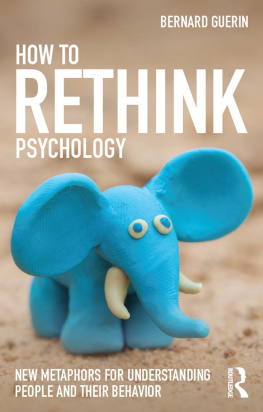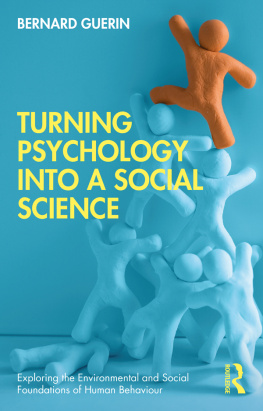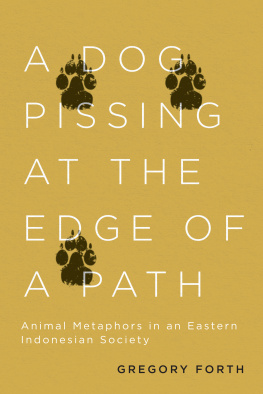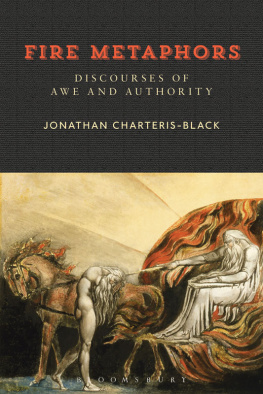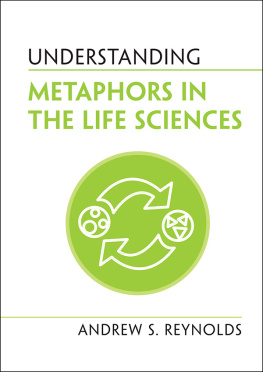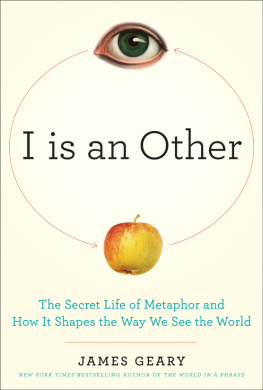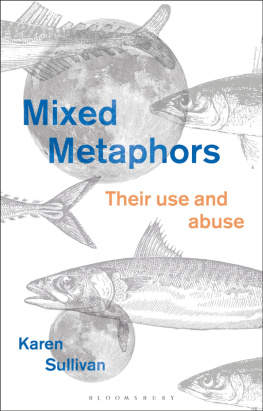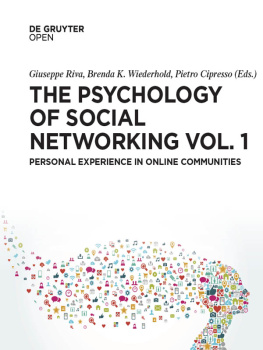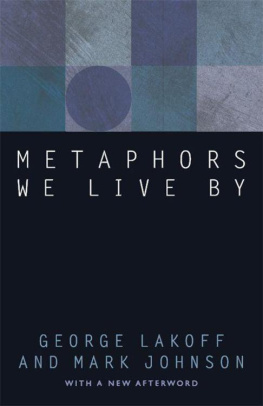
How to Rethink Psychology
Based on the authors forty years of experience in psychology, philosophy, and the social sciences, How to Rethink Psychology argues that to understand people we need to know more about their contexts than the dominant modes of thinking and research presently allow. Drawing upon insights from sources as diverse as Freud, CBT, quantum physics, and Zen philosophy, the book offers several fascinating new metaphors for thinking about people and, in doing so, endeavors to create a psychology for the future.
The book begins by discussing the significance of the key metaphor underlying mainstream psychology today the particle or causal metaphor and explains the need for a shift towards new wave or contextual metaphors in order to appreciate how individual and social actions truly function. It explores new metaphors for thinking about the relationship between language and reality, and teaches the reader how they might reimagine the processes involved in the act of thinking itself. The book concludes with a consideration of how these new metaphors might be applied to practical methods of research, understanding, and effecting change.
How to Rethink Psychology is important reading for upper-level and postgraduate students and researchers in the fields of social psychology, critical psychology, and the philosophy of psychology, and will especially appeal to those studying behavior analysis and radical behaviorism. It has also been written for the general reading public who enjoy exploring new ideas in science and thinking.
Bernard Guerin is Professor of Psychology at the University of South Australia.
How to Rethink Psychology
New metaphors for understanding people and their behavior
Bernard Guerin

First published 2016
by Routledge
27 Church Road, Hove, East Sussex BN3 2FA
and by Routledge
711 Third Avenue, New York, NY 10017
Routledge is an imprint of the Taylor & Francis Group, an informa business
2016 Bernard Guerin
The right of Bernard Guerin to be identified as the author of this work has been asserted by him in accordance with sections 77 and 78 of the Copyright, Designs and Patents Act 1988.
All rights reserved. No part of this book may be reprinted or reproduced or utilized in any form or by any electronic, mechanical, or other means, now known or hereafter invented, including photocopying and recording, or in any information storage or retrieval system, without permission in writing from the publishers.
Trademark notice: Product or corporate names may be trademarks or registered trademarks, and are used only for identification and explanation without intent to infringe.
British Library Cataloguing in Publication Data
A catalogue record for this book is available from the British Library
Library of Congress Cataloguing in Publication data
Guerin, Bernard, 1957
How to rethink psychology : new metaphors for understanding people and their behavior / Bernard Guerin.
pages cm
1. Psychology. 2. Thought and thinking. 3. Psycholinguistics. I. Title.
BF121.G84 2016
150.1dc23
2015007989
ISBN: 978-1-138-91653-1 (hbk)
ISBN: 978-1-138-91654-8 (pbk)
ISBN: 978-1-315-68955-5 (ebk)
Typeset in Times New Roman
by Out of House Publishing
Contents
Rethinking thoughts and thinking
This book arose from of many years thinking and researching about people and how to understand them. I have adopted and moved on from almost every position, theory, foundation, or paradigm in existence: always learning from them; always trying to grasp what they were desperately and uniquely trying to add before moving on; always taking something away with me. These positions have come from philosophy, psychology, Zen, psychiatry, novels, films, and other media.
This book is not my summation or final, pivotal foundation for thinking about people. Its first words are: The aim of this book is not to convince you of what I think. The aim is to get you to think differently about people and how they behave than you do now. Like Gilles Deleuze, who lies hidden in the background of this book, the whole point is that life and the world changes and morphs, so there is no certain, secure foundation that we can speak, nor will there be. What you need to learn is how to keep thinking in new ways to keep on top of things. The following is from a Facebook posting I made while in the middle of writing this book:
While writing a new book I suddenly realize that all my writings have been like the diaries of explorers. I push bravely, ruthlessly sometimes, into the jungle and write to people back home of what I am seeing and experiencing. Most of those back home have no idea what I am saying and are puzzled, or attribute the writing to too much time in the sun. They safely package what I write about into their own categories and ideas because they cannot see the beauty, freedom and dangers of these new lands. It is not their fault; I barely know what I am seeing let alone how to describe things here. One part of me wants to break it all open and let them see it as I am seeing it; but another part of me wants to leave it alone, turn around and tell them that I was mistaken and it did not exist this way Go back to your old paradigms! New ideas, like new worlds, are too precious to hand over to the civilized world. People will only come in, debase the beauty, categorize into submission, and begin to own these lands as their territory. Perhaps, I next think, I will continue to explore and write my diaries, but I will keep them to myself and pretend they were never written. Then I wonder; how many others have been here before me and done the same? There must be secret explorer diaries everywhere
So it is in this spirit that I would like you to read this book. Do not agree or disagree with everything I write, just learn how to find new ways of thinking about your life and the people you deal with in your life and work. What I do know is that older ways of thinking about people, in common sense, psychology and psychiatry, have colonized with words and made life into static models that are not working well because our lives are fluid.
So this book is really a self-help, skill-teaching book to teach you some thinking-about-people skills (hence the title). There is also a text appearing to teach you how to analyze real people and situations in their contexts (Guerin, forthcoming). I cannot know or give a basis to all the issues and problems you and the people around you experience; what I hope to do is to give you some skills to approach and handle these issues and problems in new ways that might work better. But they will be your new ways based on your immediate experience, not some worn-out words of mine.
In line with this being a skills-training book, I have not gone along with some reviewers comments and added discussions and reviews of all my sources with lots of references. If you would like that, look in my last books, which are totally over-referenced and bogged down, and follow the citations outwards from there. I have mentioned my main sources and inspirations in this book, but often these are also novels, films, and watching people in the real world. I would have you do the same.
But most of all, enjoy! Try and stop yourself going into opposition to what I say and try instead to just see if you can think that way can you even think it? Once you can, you are free to improve, change, debunk, etc. But most of all, enjoy seeing the wonderfully crazy human race in new ways that show that not all humans are crazy really, but they are wonderful!
Next page
